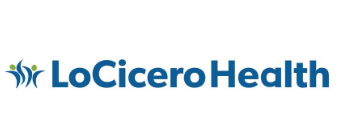
Ear, Nose, and Throat Care
Providers in the Department of Ear, Nose, and Throat (ENT) at LoCicero Health specialize in treating a variety of conditions affecting the head and neck.
Commonly treated conditions include:
- Sinusitis
- Ear infections and ear pain
- Post-nasal drip
- Hearing loss
- Dizziness and balance
- Ringing in the ears
- Sleep apnea
- Nasal obstructions
- Nosebleeds
- Vocal cord lesions
- Snoring
- Tonsillitus
- Heart burn and GERD

Our ENT providers are trained in both medicine and surgery. Working with you and your primary care provider, an ENT provider will assess your symptoms and test results to create a specialized care plan for relief.
Allergy
A board certified physician leads the Division of Allergy at LoCicero Health and directs specialized care for asthma, food and environmental allergies, and chronic respiratory infections. Procedures and treatments administered in this division include:
- skin testing for pollens and allergens
- pulmonary function testing
- patch testing for contact dermatitis
- allergy immunotherapy to decrease allergen sensitivity
WHEN IS ALLERGY SEASON?
To answer this question you must ask 2 more questions. Where do you live? And what are your allergies? However, generally speaking, there are three allergy seasons for outdoor allergies: spring, summer and fall.
Spring
In some places, spring allergy season can start as early as February. Tree pollen is the main culprit.
Summer
In summer, grasses, such as Timothy, Johnson, and Rye, release allergy-causing pollen.
Fall
Weeds are the main cause of allergies during the fall – especially ragweed.
WHEN IS ALLERGY SEASON OVER?
Millions of Americans experience year-round symptoms, regardless of when pollen season starts and ends. Year-round allergy symptoms are often caused by indoor allergies, such as dust mites, pet dander, and mold.
Consulting an allergist should be your first step to find out what’s causing your allergy symptoms. While avoiding indoor and outdoor allergens is the most effective treatment, it’s not always possible. That’s why it’s important to treat your allergies when they start.

HOW TO PREPARE FOR YOUR ALLERGY SEASON
Once you know what you’re allergic to then it helps to minimize your exposure to those allergens – whether that means cleaning your home in a certain way to reduce indoor allergens or keeping an eye on your local allergy forecast.
Once you start suffering from seasonal allergy symptoms, figure out which allergy medicine is right for you and start treating as soon as your allergy symptoms start. Taking your medicine before peak allergy season can help alleviate symptoms like nasal congestion, runny nose, itchy nose, sneezing, and itchy, watery eyes.
